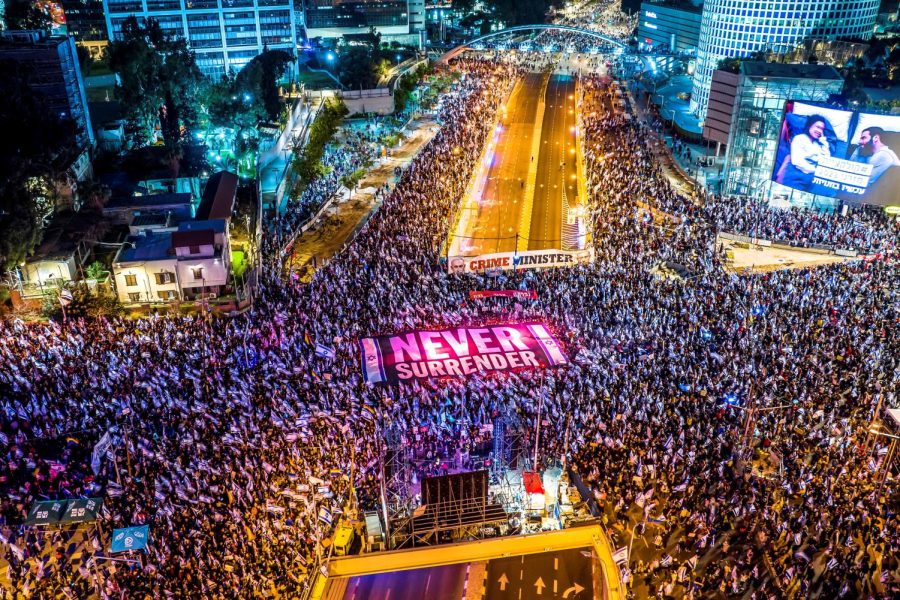Historic Israeli Protests
An aerial view shows people protesting as Israeli Prime Minister Benjamin Netanyahu’s nationalist coalition government presses on with its contentious judicial overhaul, in Tel Aviv, Israel, March 18, 2023. REUTERS/Oren Alon
March 31, 2023
Following the Israeli government’s introduction of a judicial reform plan about a month ago, protests have rocked the small middle eastern nation. The plan would weaken the supreme court by letting parliament override the court with a simple one-vote majority. Additionally, it would increase the government representation on the committee that decides who can become a judge and would change existing law, so ministers are not required to obey the advice of their legal advisers. Opponents of the plan have called it a threat to democracy. They see this plan as a way for the government to gain power and control the people.
Prime Minister Benjamin Netanyahu postponed the decision on the highly controversial plans because of fears that it could fragment his coalition or escalate into violence. Netanyahu said in a TV address, “From a will to prevent the rift in the nation, I have decided to delay the second and third reading in order to reach a broad consensus,” while calling the move “a chance to avoid a civil war”. Some Israeli politicians delicately welcomed the delay, while others called it a mistake and protest leaders said that they would keep protesting until the legislation was dead.
World leaders have since praised the prime minister’s decision to postpone the decision. The US said that they welcomed the delay and wanted Israeli leaders to find a compromise as soon as possible. In a statement offering similar sentiments, the United Kingdom Foreign Secretary, James Cleverly, said, “they welcome the decision today by Prime Minister Benjamin Netanyahu to pause legislation to reform Israel’s judiciary.” World leaders are in talks with the Israeli government, trying to avoid another crisis in a region that has historically been very unstable.
The crisis has already been one of the worst in Israel’s history, and it coincides with escalating violence in the western bank where more than 290 people of both Palestinian and Israeli descent have been killed in the past year. Residents in the Palestinian city of Huwara have reported Israeli settlers and soldiers raiding the town, shooting automatic weapons and torching cars. The rising violence and fears of national security also helped to contribute to the Prime Minister’s decision to delay the hearing of the legislation.
It is yet to be determined if the Israeli government will reopen the Judicial bill, but if they do, there are sure to be more protests and conflict. Hopefully, they can find a compromise to avoid any more tension in a region that is always on the verge of chaos.

